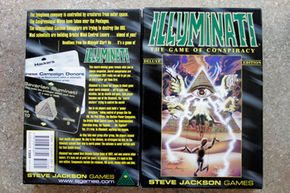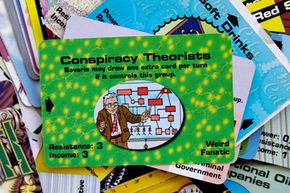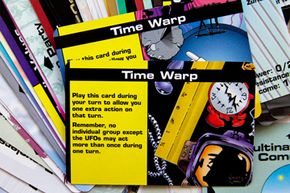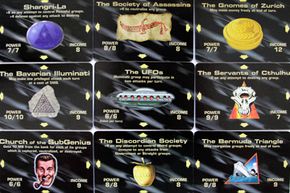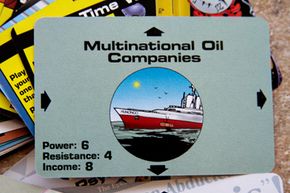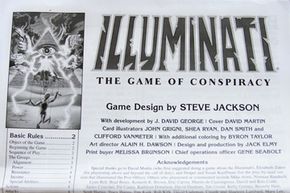It was quite early in my first game of Illuminati when I realized I was not dealing with your standard casual-fun-family card game. At that point, the five other players and I -- newbies all to the strategy-based card game -- had just figured out how to take the very first turn of the very first player.
It had taken us a full hour to do so.
Advertisement
Illuminati is decidedly NOT one of the so-called "gateway" games, intended to draw rookies in with simple rules and easy strategy. It's an advanced game for those who crave a real challenge. Fortunately, if you stick to it, you'll be rewarded with a rollicking good time, using your cunning and wiles to plot alliances, destroy enemies and achieve world domination. Best of all, Illuminati acknowledges its own cheekiness with satiric groups ("The Boy Sprouts," "Congressional Wives") -- even the directions poke fun at the game you're learning.
In the world of Illuminati, a vast, world-wide conspiracy is afoot. Secret societies are plotting to take over the globe, and you can see the results: The world financial system is collapsing, theologies and political beliefs have become radicalized, and the health of the environment is imploding.
Unfortunately, that same description might seem a bit familiar to anyone living on planet Earth right now. But if you're looking for something more sinister, consider that it's actually a master plan formed by a man named Adam Weishaupt in the 1760s. Weishaupt was a committed atheist who founded the Order of the Illuminati, a group that started off as an Enlightenment salon-type club. Because of its anti-establishment and discordian ideals, conspiracies surrounded the group. It was said that it was designed to overthrow governments, take control of financial institutions and generally promote world control [source: Atheists.Org].
Using the conspiratorial nature of the Order, the Illuminati game borrows the idea of a vast, worldwide network that players are attempting to corral. That's why quite a few conspiracies have sprung up around the Illuminati game itself. Later, we'll explore those strange occurrences where the game has seemed to predict future global events, but first, let's get some background on the game itself.
Advertisement
